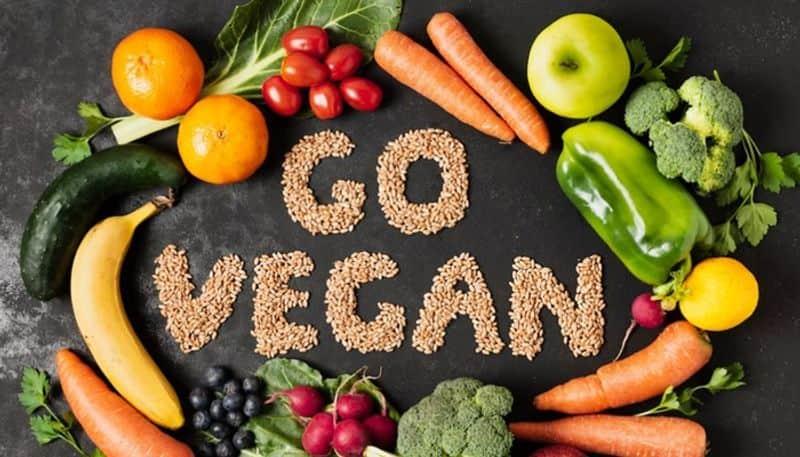
World Vegetarian Day 2023: What Is Vegan Diet? 7 Ways To 'Go Vegan' NOW
World Vegetarian Day is observed on October 1. The North American Vegetarian Society first observed this day, and it was later adopted by the International Vegetarian Union in 1978. World Vegetarian Day highlights environmental concerns, animal welfare and rights issues, and personal health advantages to persuade people to cease killing animals.
A vegetarian diet consists mostly of vegetables, seeds, legumes, fruits, nuts, and grains, as well as animal products such as eggs, dairy, and honey obtained without killing an animal or eating its meat.
What is
Vegan diet?
Vegan food refers to a category of plant-based foods that do not contain any animal-derived ingredients or by-products. This means that vegan food excludes meat, dairy, eggs, honey, and other animal-derived elements. Instead, vegan diets focus on fruits, vegetables, grains, legumes, nuts, seeds, and plant-based alternatives.
Vegan food can be incredibly diverse and include a wide range of dishes such as salads, stir-fries, pasta, sandwiches, curries, and desserts, all prepared without the use of animal products. Common vegan substitutes for traditional animal-based ingredients include tofu and tempeh for protein, almond or soy milk for dairy, and flaxseed or applesauce for eggs in baking.
Veganism emphasizes ethical and environmental considerations by avoiding the exploitation of animals and reducing the environmental impact associated with animal agriculture. Vegan food is not only nutritious but also aligned with principles of compassion and sustainability.
Here are seven ways to go vegan on World Vegetarian Day or any day:
Educate Yourself : Start by learning about veganism, its principles, and the impact of animal agriculture on the environment and animal welfare. Understanding the reasons behind veganism can motivate you to make the switch. Plan Your Meals : Explore vegan recipes and meal plans to ensure you have a variety of delicious and satisfying options. There are numerous vegan cookbooks, websites, and apps available for inspiration. Transition Gradually : Going vegan doesn't have to happen overnight. You can transition gradually by eliminating one animal product at a time. Start with meat, then dairy, eggs, and other animal-derived ingredients. Discover Vegan Alternatives : Explore the wide range of vegan alternatives available in stores. Plant-based milk (e.g., almond, soy, oat), vegan cheeses, tofu, tempeh, and seitan can replace dairy and meat in many recipes. Read Labels : When grocery shopping, read labels carefully to identify and avoid animal-derived ingredients like gelatin, rennet, and certain food colorings. Many packaged foods are labeled as "vegan" for your convenience. Dine Out Thoughtfully : Check out vegan-friendly restaurants or vegan options at your favorite eateries. Many restaurants offer plant-based menu items, making it easier to enjoy vegan meals when dining out. Join the Vegan Community : Connect with the vegan community online or in your local area. Engaging with like-minded individuals can provide support, resources, and valuable tips for a successful transition.Remember that going vegan is a personal choice, and taking it at your own pace is okay. The key is to be informed, make conscious choices, and enjoy the journey towards a more compassionate and sustainable way of eating.
Legal Disclaimer:
MENAFN provides the
information “as is” without warranty of any kind. We do not accept
any responsibility or liability for the accuracy, content, images,
videos, licenses, completeness, legality, or reliability of the information
contained in this article. If you have any complaints or copyright
issues related to this article, kindly contact the provider above.


















Comments
No comment